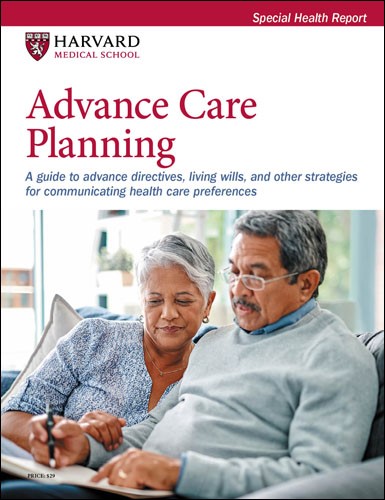Should you hire a medical wingman?
These are the pros to turn to when navigating the health care system becomes a challenge.
- Reviewed by Anthony L. Komaroff, MD, Editor in Chief, Harvard Health Letter; Editorial Advisory Board Member, Harvard Health Publishing

Coping with a medical condition involves more than taking care of yourself at home. You need to be able to schedule and get to medical appointments, work with your doctor, pick up medications, talk to your insurance company, pay medical bills, and more. And that's hard if you don't feel well, you're stressed, or you're on your own.
Fortunately, a number of professionals can help. Before you pick up the phone, learn which experts will fit your needs and how much they'll charge.
For a little help
Need someone to get you to the doctor, bring you by a pharmacy afterward, and take you home? You may need a home care aide (or "home companion"). That's a registered (but not licensed) professional who can keep you company and help with errands, meal prep, and light housework.
If you need someone who can do all that plus help you shower, dress, or use a bathroom, you'll need a personal care attendant (PCA) or a licensed certified nursing assistant (CNA). They have formal training and are legally allowed to provide hands-on physical care.
For a lot of help
Do you need someone to be with you and advocate for you in a medical setting, call your insurance company, make sure your medical bills are paid, research treatment options and services, hire and manage home care, and more? Two types of professionals can help: an Aging Life Care Professional (formerly called a geriatric care manager) and a patient or health care advocate.
These experts belong to professional organizations with codes of ethics that require certain skills, education and experience levels, and certifications. Both provide assessments, problem solving, advocacy, and education. Yet there are slight differences to what they do.
Aging Life Care Professionals work only with older adults and are well known for being developers and coordinators of care plans. "We're the quarterback of an older adult's care. We'll connect you to resources, manage them, go to doctor appointments and hospitals, and hold your hand through the process," says Debra Feldman, president of the board of directors of the Aging Life Care Association, the national organization for care managers.
Patient or health care advocates work with people of all ages. While they, too, can oversee the big picture of your health, many choose to specialize in a particular field. "Some patient advocates work only with specific populations like people with cancer, neurological disease, or mental health issues. These advocates can find specialists, research treatment options, make appointments, and sit at the bedside. Others focus on insurance or billing issues and dealing with appeals," says Dr. Heidi Kummer, president of the Patient Advocate Certification Board.
The doctor's take
Doctors look at these hired support professionals as additional members of your health team.
"They're a huge help to clinicians. Patients don't always clearly describe their symptoms and circumstances. So clinicians don't get a complete picture of whether someone is taking medication, has enough to eat, has vaccines, or is falling frequently. Hired experts can usually answer those questions and let us know if the patient needs more help. The only drawback is cost," says Dr. Suzanne Salamon, associate chief of gerontology at Harvard-affiliated Beth Israel Deaconess Medical Center. (See "How much does it cost?")
How much does it cost?There's a wide range of fees for support services to navigate health care, and they depend on where you live and how much the hired professional does for you. The national average for a home care aide or a certified nursing assistant (CNA) is $27 to $28 an hour. Fees for Aging Life Care Professionals and patient advocates range from $75 to more than $300 per hour. Medicare doesn't cover these costs. Some long-term care insurance plans and veterans benefits may pay part of the expenses for CNAs. Health Spending Accounts can also be used. If you need to set up only a basic care plan, and you have family members to help you manage it, a social worker from your local Area Agency on Aging (/aaa) or senior center may be able to make recommendations for free. |
Before hiring anyone
Make sure the people who are helping you are qualified or certified in their field and are members of professional organizations. Ask how much they charge. And don't wait too long to reach out to someone for help. "Ideally, call before a crisis," Feldman says. "If you already have a challenging health condition, it may make sense to get a consultation." For more information on finding one of these professionals, visit /wingman.
Image: © Twenty47studio/Getty Images
About the Author

Heidi Godman, Executive Editor, Harvard Health Letter
About the Reviewer

Anthony L. Komaroff, MD, Editor in Chief, Harvard Health Letter; Editorial Advisory Board Member, Harvard Health Publishing
Disclaimer:
As a service to our readers, Harvard Health Publishing provides access to our library of archived content. Please note the date of last review or update on all articles.
No content on this site, regardless of date, should ever be used as a substitute for direct medical advice from your doctor or other qualified clinician.
















